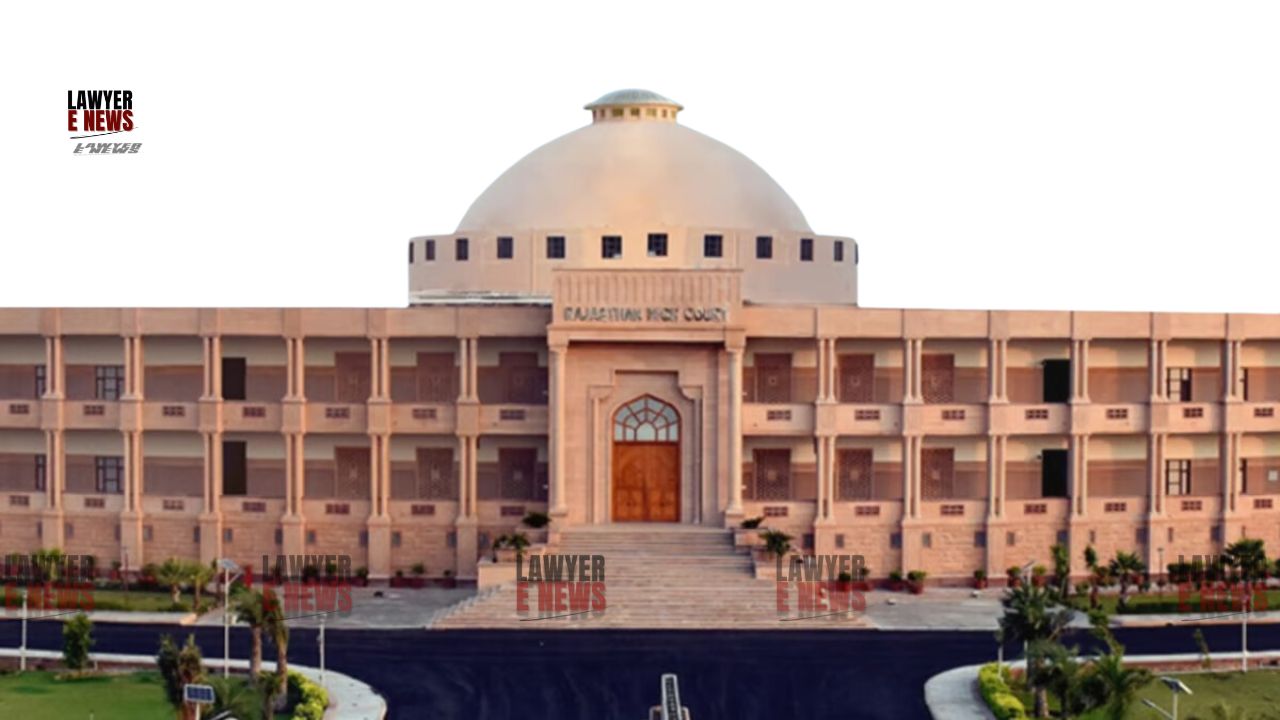-
by Admin
15 February 2026 2:36 AM



"Judicial Restraint Necessary in Public Service Contracts, the Rajasthan High Court, Jaipur Bench, delivered a significant judgment concerning judicial intervention in public procurement projects. A Division Bench comprising Chief Justice Manindra Mohan Shrivastava and Justice Ashutosh Kumar emphasized that ex-parte interim orders must not delay critical public infrastructure projects, such as those related to electricity production, and directed the expeditious disposal of the related writ petition within one month.
The judgment came in the case where the Court partially allowed an appeal challenging an ex-parte stay that had restrained RVVNL from awarding a work order for conveyor belt procurement to the lowest bidder.
"Any contract of public service should not be interfered with lightly, and interim orders should not derail projects meant for public welfare."
The case revolved around a tender issued by RVVNL for the procurement of conveyor belts—an essential component for transporting coal to boilers in thermal power plants, critical for electricity production. RVVNL awarded the contract to the lowest bidder (L1), NRC Industries Pvt. Ltd., but the decision was challenged by the second-lowest bidder, Somi Conveyors Beltings Ltd., alleging the L1 bidder’s ineligibility due to prior debarment by NTPC.
On June 25, 2024, the Vacation Judge passed an ex-parte interim order restraining RVVNL from awarding the work order to NRC Industries. Despite RVVNL filing a stay vacation application on July 10, 2024, the matter remained pending for months, causing delays in the procurement process.
RVVNL argued that the delay in procurement of conveyor belts due to the stay order was adversely affecting electricity production. The corporation sought the vacation of the interim order, highlighting the public interest in timely procurement and pointing to the limited scope of judicial review in tender matters.
Should an ex-parte interim order delay essential public infrastructure projects?
What is the scope of judicial review in tender disputes concerning public interest?
Can prolonged pendency of interim orders effectively decide the main writ petition?
The Court held that ex-parte interim orders in public infrastructure projects, such as electricity production, should be avoided unless absolutely necessary. The bench criticized the prolonged pendency of the stay application, stating that such delays undermine public welfare and result in avoidable state losses.
Court’s Observation: "Interim orders in public procurement matters should be reviewed or vacated expeditiously. Keeping such orders pending without resolution effectively decides the main petition and obstructs public projects." [Paras 10, 13]
The Court reiterated the principles laid down by the Supreme Court in N.G. Projects Ltd. v. Vinod Kumar Jain (2022), which cautioned against judicial interference in public service contracts. The bench emphasized that courts must consider the larger public interest and avoid halting infrastructure projects critical for public welfare.
Court’s Observation: "Contracts involving public service and infrastructure projects should not be interfered with lightly. Judicial intervention must be limited to cases of manifest arbitrariness or procedural unfairness." [Paras 12-13]
The Court acknowledged that the decision to award the contract to NRC Industries was based on fiscal prudence, expert evaluation, and satisfactory performance records. It emphasized that the scope of judicial review in tender matters is confined to ensuring procedural fairness and preventing arbitrariness.
Court’s Observation: "The procurement process was informed by fiscal prudence and expert opinion. The award of the contract to the lowest bidder did not suffer from manifest arbitrariness or procedural irregularities." [Para 11]
The Court criticized the prolonged pendency of RVVNL's application for vacating the stay. It observed that unresolved interim orders can cause significant harm to public interest by delaying critical projects.
Court’s Observation: "Continuing the interim order without deciding the stay application or the writ petition effectively grants final relief to the petitioner, causing serious prejudice to public interest." [Para 13]
The Court allowed the ex-parte interim stay to continue only for one more month or until the writ petition is decided, whichever is earlier.
The Single Bench was directed to decide the writ petition within one month. The Court emphasized that no adjournments should be granted to either party.
The Court underscored the necessity of ensuring timely procurement of conveyor belts to avoid disruptions in electricity production, which is critical for the public at large.
The judgment reinforces the principle that courts should exercise judicial restraint in public procurement disputes, especially those involving critical infrastructure projects. Ex-parte interim orders should not disrupt projects of larger public interest, and stay applications must be decided expeditiously.
The Court reaffirmed that the lowest bidder's eligibility and technical qualifications are primarily matters of expert evaluation. Judicial intervention is warranted only in cases of manifest arbitrariness or procedural lapses.
The judgment emphasizes the need for speedy resolution of disputes involving public service contracts. Prolonged interim orders, especially in infrastructure projects, can harm public welfare and lead to avoidable financial losses for the state.
The Rajasthan High Court's judgment underscores the need to balance judicial intervention with public interest in infrastructure projects. By directing the expeditious disposal of the writ petition and limiting the interim stay, the Court has sought to ensure that public welfare is not compromised by procedural delays.
Date of Judgment: November 19, 2024
